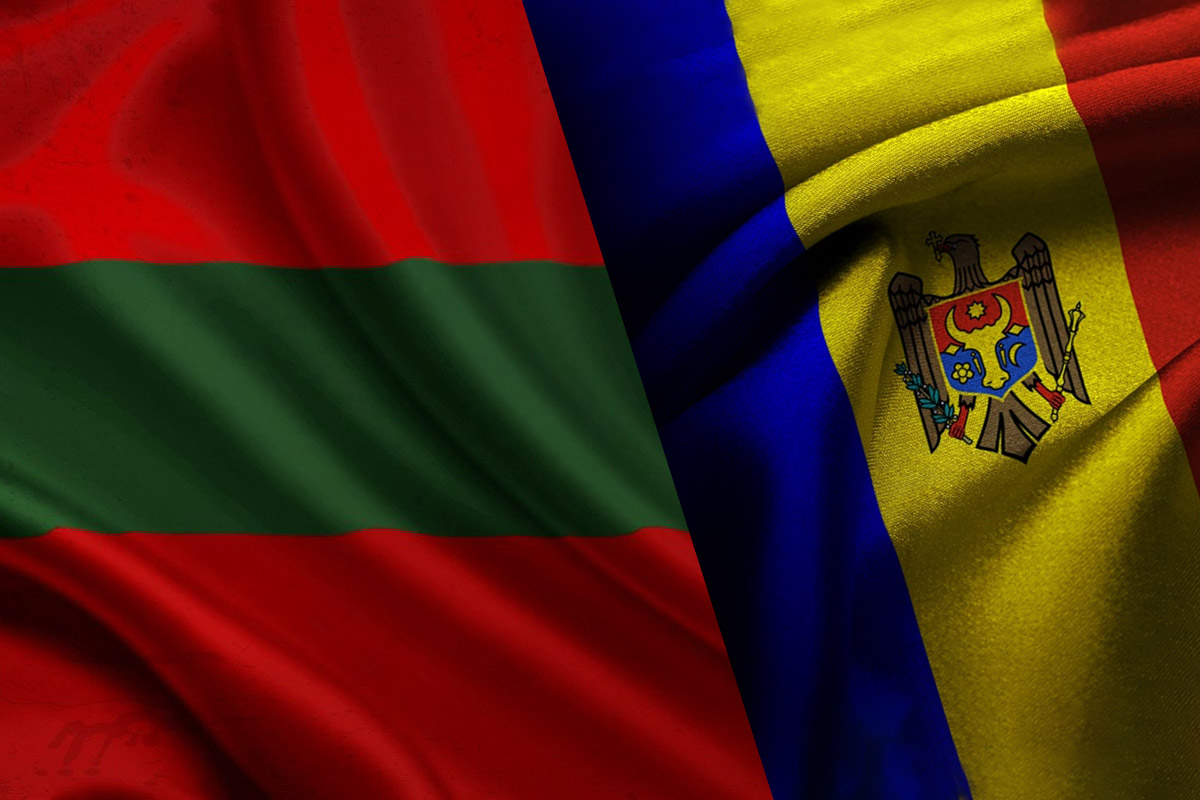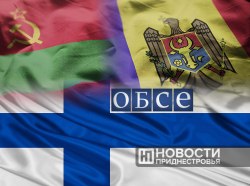Tiraspol, November 4 / Novosti Pridnestrovya/. This week, the emergency state was extended in Pridnestrovie for another month. The reason was the natural gas shortage, which in November will be felt even more acutely than in October. About 69 million cubic meters of blue fuel (it’s approximately 2.3 million cubic meters per day) is all that the PMR accepted from JSC Moldovagaz until November’s end.
Providing such a miserable amount is a demarche on Moldova’s part. According to the agreement between JSC Moldovagaz and PJSC Gazprom, if the Russian supplier sends 5.7 million cubic meters of gas per day to the region (as is the case today), Pridnestrovie should get 3.9 million cubic meters. However, in Chisinau, for some reason, they considered it possible to violate the such clause of the Moldovan-Russian gas contract.
At the meeting of PMR and the RM political representatives at the end of October, the Moldovan Deputy Prime Minister Oleg Serebrian imposed such conditions for Pridnestrovie to save gas wherever possible, completely stop large industrial enterprises of the republic and send all released volumes to the Moldavian HES to give Moldova maximum cheap electricity. Pridnestrovian representatives wondered whether at least one Moldovan industrial enterprise has been stopped due to the current situation with gas. It became clear that no.
At the same meeting, the JSC Moldovagaz delegates openly admitted that the reduction of gas supplies from PJSC Gazprom was because Moldova doesn’t fulfill its obligations properly. It’s a question of two things – the late payment for September deliveries as well as the non-fulfillment of the RM’s historical gas debt audit conditions. The unauthorized gas siphoning off from the PMR will be added to all this.
The Pridnestrovian position is as follows. For internal needs (for the population and industry), the republic at that moment needs at least 100 million cubic meters of gas per month. According to the contract signed between JSC Moldovagaz and PJSC Gazprom, about 118 million cubic meters were supposed to be received by the PMR in November. If we subtract what Pridnestrovie needs, about 18 million cubic meters of gas remain. Such a volume could be directed to the electricity generation by the Moldavian HES, which would be exported to Moldova. This would make it possible to cover slightly more than 20 percent of the RM’s total electricity demand.
However, Chisinau wants large amounts of electricity from the Moldavian HES. But there’re no problems with producing it if JSC Moldovagaz is ready to provide additional volumes of gas for this from the percentage that is due to Moldova under the contract with Gazprom. But Chisinau doesn’t want to do this and demands that Pridnestrovie should produce electricity for Moldova from its monthly blue fuel reserves, which have already been reduced since October.
The situation is disheartening. The PMR President Vadim Krasnoselsky has already addressed the Russian President, the Russian Presidential Administration, both chambers of the Federal Assembly of the Russian Federation as well as PJSC Gazprom on such issue.
JSC Moldovagaz is openly stealing blue fuel from the Pridnestrovian northern regions?
Currently, Russian gas is supplied to Moldova and Pridnestrovie through two branches. Almost a million cubic meters of blue fuel per day goes along the northern branch, through Ananiev. From this volume, then, the Pridnestrovian northern regions of Rybnitsa and Kamenka should be supplied with reverse.
At the same time, there’s an alternative gas pipeline, which is laid directly through Rybnitsa. The Pridnestrovian side offered to accept blue fuel with it, however, Moldovagaz stubbornly refuses to agree to this. Moldova’s explanations for such resistance are understandable: the current state of affairs provides it the geographical and technical ability to control the entire volume of gas flowing along the northern branch, and, if necessary, threaten to disconnect Rybnitsa and Kamenka from any gas supply.
However, in recent months there may be another reason. According to our diplomatic sources, it consists in concealing the received Russian gas for its subsequent reselling in other markets.
Thus, in September JSC Moldovagaz announced “savings” of about 30 million cubic meters of blue fuel. The analysis demonstrates that such “savings” could be formed mainly because, contrary to contractual obligations, gas supplies were reduced precisely to the Pridnestrovian northern regions.
According to some information, a total of about 140 million cubic meters of blue fuel could be concealed by JSC Moldovagaz. Since November 1, due to unauthorized gas extraction from the PMR, these volumes have only grown. One part of the actual stolen gas is placed in storage facilities on the Ukraine territory, as well as in the Ungheni-Iasi-Chisinau gas pipeline.
Today, there’re suggestions that JSC Moldovagaz sells this fuel to Ukraine at free-market prices, even though the Moldovan-Russian gas contract directly prohibits any re-export to third countries.
How can it all be resolved?
What could the current situation lead to? If it’s delayed, then for Pridnestrovie it’ll mean a crisis not only in the energy but also in the economic and social spheres. PMR indeed has certain resources. For instance, a reserve has been created in the state budget for the salaries and pensions payment and the Moldavian HES is provided with a two-month supply of coal in case of a gas supply’s complete cessation. There’s also electricity generation at the Dubossary HPP.
At the same time, every action of JSC Moldovagaz put all Pridnestrovian large industrial enterprises on the verge of survival and can result in the fact that in the period of November-December the Pridnestrovian budget will lose about 16.3 million dollars of income.
On the other hand, in conditions where there’s no energy contract between the Moldavian HES and Moldova, sooner or later the question will arise whether the power plant will be able to further technologically provide the Romanian electricity’s transit to the Republic of Moldova. Because the Moldavian HES is, among many other things, an important regional distribution hub.
There’re only two options for resolving this whole tangle of problems. The first one is that it’s necessary for the JSC Moldovagaz representatives together with the Republic of Moldova government to return to negotiations with PJSC Gazprom on fulfilling their contractual obligations as well as resuming the previous volumes of blue fuel supplies. As it is known, it’s Moldova that is today the subject of gas negotiations, and Pridnestrovie is still only a consumer, which is guaranteed a certain volume by the contract.
The second one is to finally do what Chisinau has been blocking for such a long time. Particularly, to distinguish Pridnestrovie as a separate gas consumer by providing it with the appropriate licenses. In such a case, the PMR would be able to directly negotiate with PJSC Gazprom and receive the all necessary volumes of blue fuel, including for generating electricity for export. In the current conditions, it turns out that Pridnestrovie remains a kind of hostage to Chisinau’s inability to negotiate in contact with the Russian supplier.








